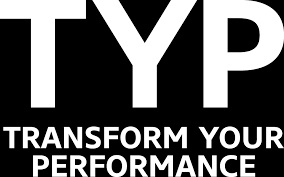- You are here:
- Home »
- Blog »
- Entrepreneurship & Business
- » Better Self-Management
Better Self-Management
“Better self-management: Put brain, heart, and muscle power into it.” – Raj Gavurla
Lately there has been an increase in the use of the word “he/she/they/we don’t want” or “attitude” used instead of really helping the person who you think should want or have a positive attitude towards something.
Examples:
1. “Because he/she doesn’t want to make an A”. Most people want to make “A’s”. So it’s ridiculous to say they don’t want to that’s why they aren’t. Yes, the ability to teach is not a skill everyone has developed, built, grown, and usually the people who don’t have this skill revert to the two reasons why; “they don’t want to” or “attitude”.
Everyone’s situation is different, however, one way to increase reading comprehension, retention, and application of learning might be the following:
1. Read the first paragraph of the chapter
2. Read the last paragraph of the chapter
3. Read the headings in the chapter if present
4. Ask yourself questions as you read specific sections
5. Write in the margins to denote its significance to you
Yes, this takes more prep time/work, however, it makes you faster in the end because of your ability to comprehend, retain, and apply the learning.
2. You see this in the workplace also because people aren’t making sure all the relevant information is there or they have anxiety. Trying to get through it as fast as they can without making sure to first check to see is all the relevant information there and if something is missing find it (research) and then put the steps needed to complete it with an estimated amount of time. Realize, most people are working on multiple projects at work so put that into your time estimate and assign your time as “uninterrupted”, “regular”, or “interrupted” to accurately estimate the time. This will take undue pressure off of you. If someone wants you to do it faster without providing you the tools or methods to do so then tell them “that’s as soon as I can have it done”. Put some margin in there for breathing room and unexpected events. Planning helps.
3. When I taught Career Planning & Exploration my students were future medical assistants, owners, entrepreneurs, computer technicians, and business management professionals.
To prepare, I learned about their course of study to grasp some of the vocabulary to relate to them. As we prepared for mock interviews, I would ask relevant questions pertaining to their field as being knowledgeable and then play the role of someone who wasn’t knowledgeable about their field but had a role in learning to run a better business. Seeing their qualitative answers in the debrief was insightful because of what was surprising, shocking, or went unnoticed. As they sat in a waiting room to prepare for a mock interview you could sense, see, and feel their brains, hearts, and muscles working. One had received news a few hours before that her apartment was flooded, one was battling chronic pain, and the others had their situation.
They all did well in their mock interviews because of “better self-management”. There were areas they felt they could have done better. That’s very important to know you can do better by increasing your skills although you are already skilled (competent) in a specific skill.
So, to transform your performance think of these examples and how you relate (“adaptability link”) to them. “Better self-management” makes it easier for you to transform your performance.
“Believe you can and you’re halfway there.” Theodore Roosevelt
For programs and services, contact Raj Gavurla at 864.569.2315, raj@rajgavurla.com, LiiiVEN.
About the Author Raj Gavurla
Raj helps and works with individuals, teams, and athletes that want to experience human performance, life, organizational development and breakthroughs interconnected with your life, business, and sports.
